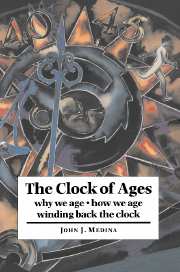14 - Programmed death
Published online by Cambridge University Press: 05 August 2012
Summary
If there ever was an example of a deliberately programmed demise of a famous historical figure, it was the events surrounding the death of Napoleon Bonaparte.
Once, the emperor was the most towering figure in all of Europe. His exile to St Helena at the age of 46 was a crushing fall from greatness. In many ways, it illustrates the enormous contradictions of the man, his physical height and his political stature, his recklessness and his careful strategizing, his adversity and his luck. In 1815 (the year of his exile), he was already more myth than man, and his legendary ability to rise from obscurities still produced dread in his enemies. He was banished to the south Atlantic in part from fear. His own words echoed his frustration: ‘Ability is of little account without opportunity.’
Arriving on the island, he immediately settled into a life of routine. His health was robust, he had many years to live (so he thought) and he had much of the island at his disposal. Every morning, the former emperor awoke at 9:00, performed his morning toilette, and had breakfast at 10:00. Though he was free to explore, Napoleon never wandered far from his assigned house. Instead, he spent much of his day ‘writing’ – dictating to his secretary, really – various notes, letters and eventually a will for posterity. He dined at 7:00, read from the books in his library (he was fond of the classics) and retired for the evening at 11:00.
- Type
- Chapter
- Information
- The Clock of AgesWhy We Age, How We Age, Winding Back the Clock, pp. 271 - 292Publisher: Cambridge University PressPrint publication year: 1996



